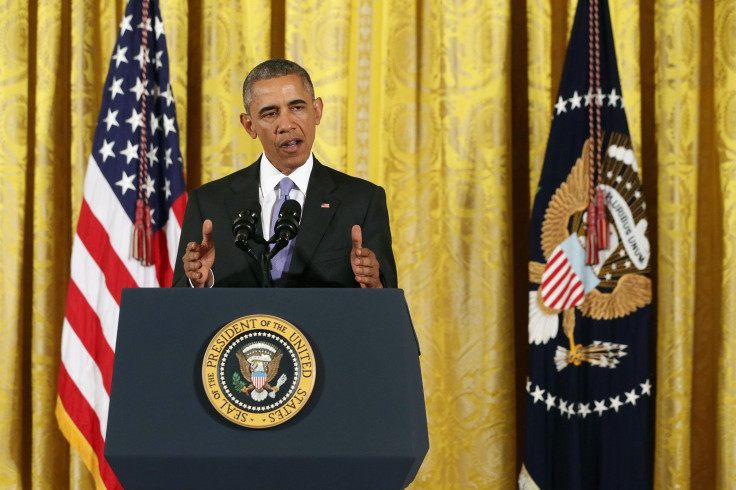Iran Nuclear Deal Necessary To Prevent Arms Race Despite Differences With Islamic Republic, Obama Says

President Barack Obama called Tuesday's deal with Iran "historic" while asserting the deal would work to boost regional security by preventing Iran from obtaining a nuclear weapon and prompting an arms race. “This nuclear deal meets the national security interests of the U.S. and our allies. It prevents the most serious threat -- Iran obtaining a nuclear weapon," the president said Wednesday during a press conference at the White House.
Expecting backlash from Congress, Obama said he welcomed a debate based on facts. "There are legitimate and real concerns," Obama acknowledged. "We have huge differences with Iran."
Iran and six world powers, including the United States, reached a deal Tuesday, concluding more than a decade of negotiations over Iran’s controversial nuclear program.
Under the deal, Iran would be required to cut down significantly on the number of centrifuges it currently holds. In return, the U.S., European Union and the United Nations are expected to lift sanctions that have significantly devalued the Iranian currency.
Obama acknowledged considerable differences between American and Iranian interests in the region and said the deal should not be thought of as normalizing relations with Iran. "This deal is not contingent with Iran changing its behavior, or Iran suddenly acting like a liberal democracy. It solves one particular problem which is making sure they don’t have a bomb," Obama said.
A recent poll of American opinion toward an agreement with Iran found that while most Americans supported negotiations, few trusted Iran to keep its end of the bargain.
Pres. Obama: Number one priority concerning Iran "is making sure that they don’t have a bomb." http://t.co/dLH8cxmjeK pic.twitter.com/wgXv4PyKI5
— ABC News Politics (@ABCPolitics) July 15, 2015Reiterating comments made Tuesday, Obama said the deal with Iran is not based on trust, and will allow unmatched access to Iran's nuclear facilities for inspections. In the event Iran refuses inspections, Obama said "sanctions will snap back" at the U.S.'s call, without requiring Russian or Chinese approval.
Because Iran continued to support terror around the world, an arms embargo on Iran would remain for five years as part of the agreement, Obama added.
Iranian President Hassan Rouhani on Wednesday also lauded the “historic” deal as "an achievement that Iran won’t be called a world threat anymore," he said.
© Copyright IBTimes 2025. All rights reserved.






















